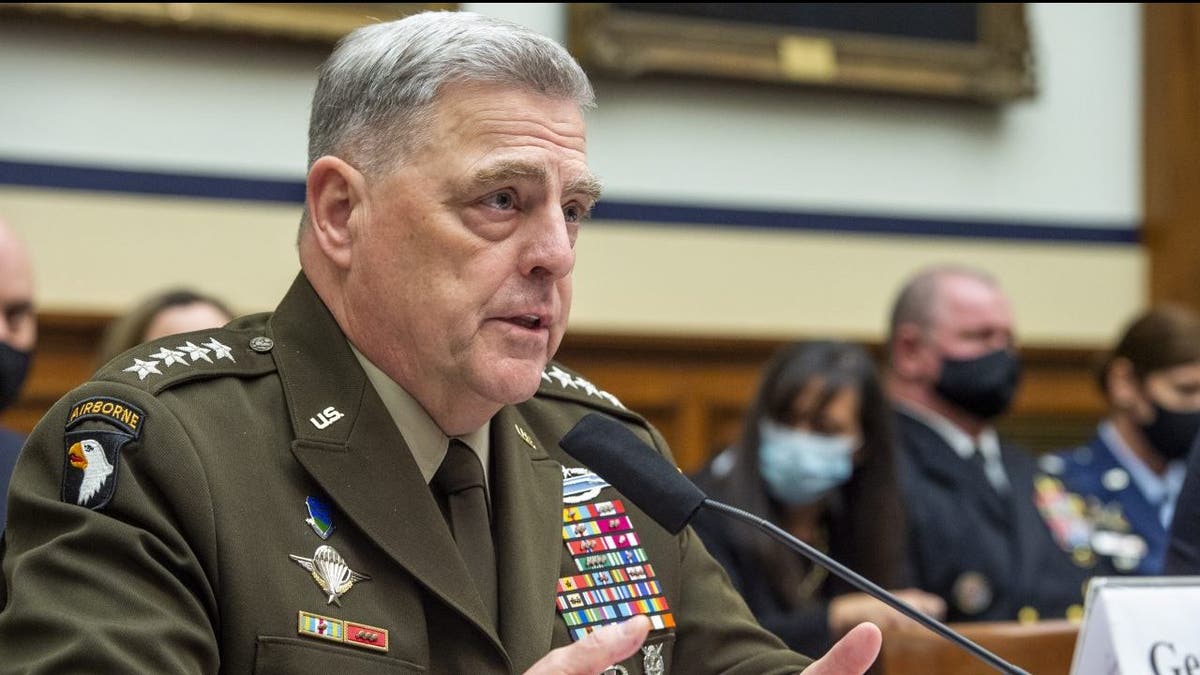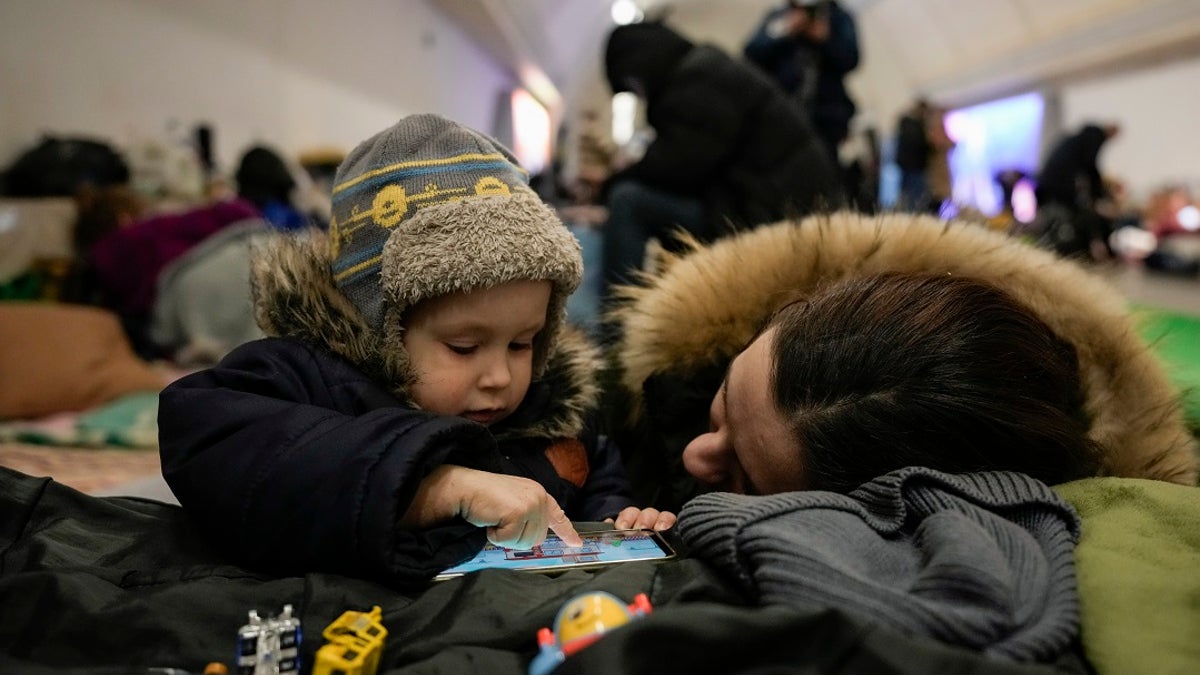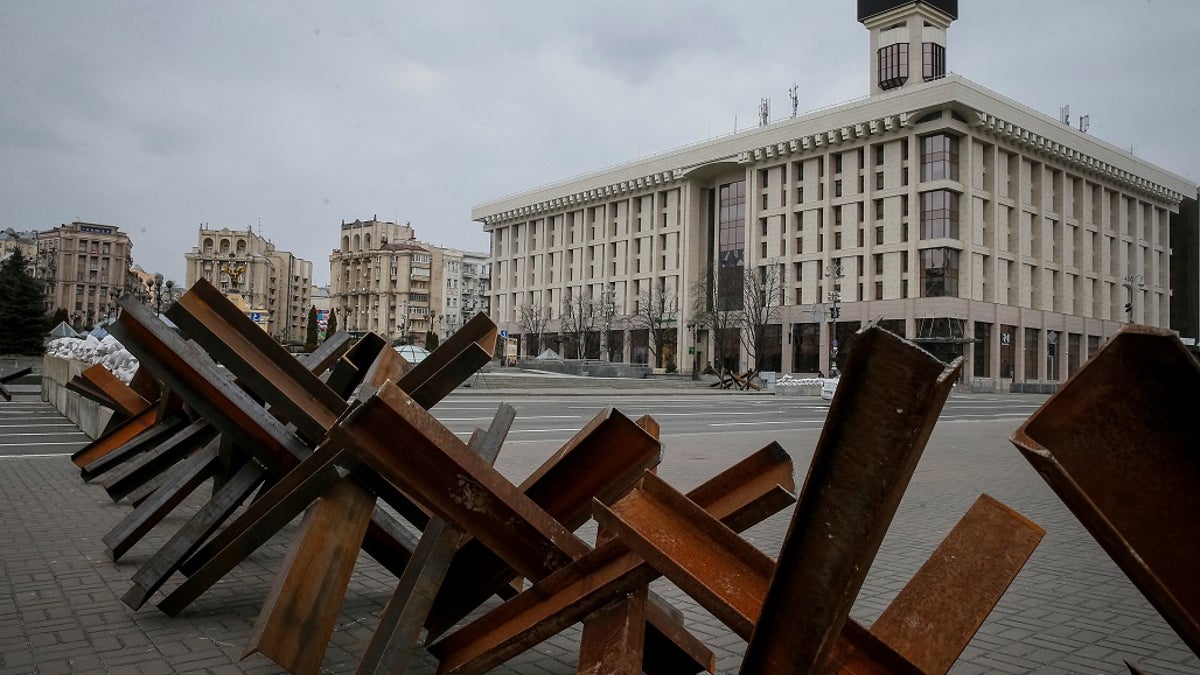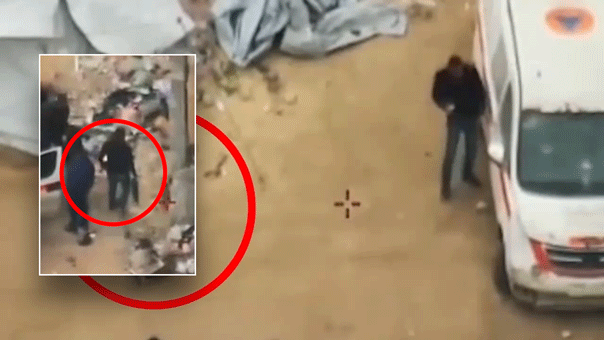Russian airstrikes kill 21 people in Northeast Ukraine
Fox News State Department correspondent Benjamin Hall discusses the overnight Russian airstrike that left 21 dead, including 2 children, in Northeastern Ukraine on ‘Special Report.’
As Russia massed a large military presence on its border with Ukraine weeks before launching its invasion, Western intelligence officials were concerned the capital city of Kyiv could fall in a matter of days amid a Russian assault.
Now two weeks into the conflict, the capital remained in Ukrainian hands and Russian troops have failed to make substantial progress as opposition forces continue to put up fierce resistance. Russian forces were reportedly trying to encircle the city, but the loss of equipment and personnel has taken its toll and significantly slowed their advance.
Meanwhile, Moscow has targeted several Ukrainian cities with devastating airstrikes that have left civilians dead and forced many to flee to neighboring countries.
RUSSIA INVADES UKRAINE: LIVE UPDATES
The predictions that Kyiv would fall, a major Russian objective, represented an intelligence failure, though not a major one, said Rebekah Koffler, a former Defense Intelligence Agency officer and author of "Putin's Playbook: Russia's Secret Plan to Defeat America."
Part of the misstep by intelligence officials was the influence of previous events, she said, citing the disastrous withdrawal of U.S. troops from Afghanistan, the Sept. 11 attacks and the Iraq War.
"They're a little bit influenced by that and they wanted to telegraph to the policymakers the urgency," Koffler told Fox News.
Milley's prediction
In early February, Chairman of the Joint Chiefs of Staff Gen. Mark Milley told lawmakers during a closed-door briefing that Kyiv could fall within 72 hours after a full-scale Russian invasion. He said the operation could result in 15,000 Ukrainian military deaths and 4,000 Russian troop deaths.
RUSSIA-UKRAINE WAR: INTEL OFFICIALS PREDICT ‘UGLY’ WEEKS AHEAD AS PUTIN DOUBLES DOWN
That prediction, like predictions regarding how long Afghanistan's army could last without U.S. support, has already been disproved. Kyiv has held out long past the dire prognostication. The war grinds on. Last week, Russia claimed it had lost 498 military personnel, a figure widely disputed by the Pentagon, which put the death toll somewhere between 2,000 and 4,000. Ukraine has claimed nearly 11,000 Russian military deaths and the Kremlin is believed to be actively concealing the true number.

Chairman of the Joint Chiefs of Staff Gen. Mark A. Milley testifies on Capitol Hill, Sept. 29, 2021. (Getty Images)
The fact remains that Kyiv did not fall, and Afghanistan did not stand, despite Milley's speculations in May 2021 that the U.S.-backed government there could.
"It's not a foregone conclusion, in my professional military estimate, that the Taliban automatically win and Kabul falls, or any of those kind of dire predictions," Milley said during a news briefing at the time. "There's a significant military capability in the Afghan government, and we have to see how this plays out."
Afghanistan fell swiftly to the Taliban after the U.S. military shuttered Bagram Air Base. Milley, along with Defense Secretary Lloyd Austin and Secretary of State Antony Blinken, was among the Biden administration leaders who green-lit that plan. They are now helping direct the U.S. response to Russia's aggression in Ukraine.
Closer to Kyiv
The fighting between both sides has moved closer to Kyiv as civilians continue to be targeted by Russian shelling. On Monday, Ukrainian officials claimed to have downed two Russian aircraft over the area and Russian artillery units have shelled the outer portions of the city.
From a manpower standpoint, Russia has sent nearly 100% of its combat forces into Ukraine, Defense Department officials said Monday. This is an unusual move: Armed forces tend to keep numbers in reserve outside the theater of combat. In addition, Moscow was recruiting Syrian fighters to back up the Russian army as the Kremlin struggled to contain its losses, along with global condemnation over the invasion and political and economic isolation. Moscow has already reportedly sent Chechen forces to hunt down Ukrainian President Volodymyr Zelenskyy, and those forces have reportedly been eliminated by the Ukrainians.
Pete Marocco, former deputy assistant Secretary of State for conflict and stabilization operations, told Fox News that predictions about whether Kyiv would fall to Russian troops came before the Beijing Winter Olympics in February.

A woman and her child sit on the pavement in a subway station turned into a shelter in Kyiv, Ukraine, on Tuesday. (Associated Press)
"I’m not sure it was an intelligence failure. I don’t know that it was an inaccurate statement to say that it could have fallen within 72 hours," he said. "As time languished on, Ukraine became prepared."
He noted that such dire warnings could possibly be messaged with the intent of spurring one’s allies to make necessary preparations or possibly overcompensating for the miscalculations in Afghanistan.
‘Lull before the start’
Russia’s invasion of Ukraine came days after the end of the Winter Games, a misstep on Putin’s part, said Marocco. The reason why he waited to begin military operations is left to speculation, he said.

Anti-tank constructions are seen in central Kyiv, Ukraine, on Monday. (Reuters)
"I don’t see him as having that sort of sensitivity or caring unless there might have been some sort of tactic or mutual agreement with China," Marocco said. "If he did that, that would be a surprising strategic blunder on his part. I tend to think that there’s another explanation behind the scenes as to why there was this lull before the start. Perhaps to allow predictable sanctions targets enough time to move assets before U.S. sanctions would be put in place."
As the war rages, intelligence warnings of the downfall of Kyiv are irrelevant, said Daniel Hoffman, a retired CIA Senior Clandestine Services Officer. He added that intelligence doesn't make predictions.
CLICK HERE TO GET THE FOX NEWS APP
"The Russian logistics suck. The supply chain sucks. Zelenskyy has been a hero. Ukrainians have stepped up to fight," he told Fox News. "It's always on a spectrum. You ask some CIA analyst and they would have said: ‘I have a low medium or high level of confidence that the fight could last this long or that long.’"
"I'm not even sure it's an issue," he added. "It's over. It doesn't matter. The fight's on."













































